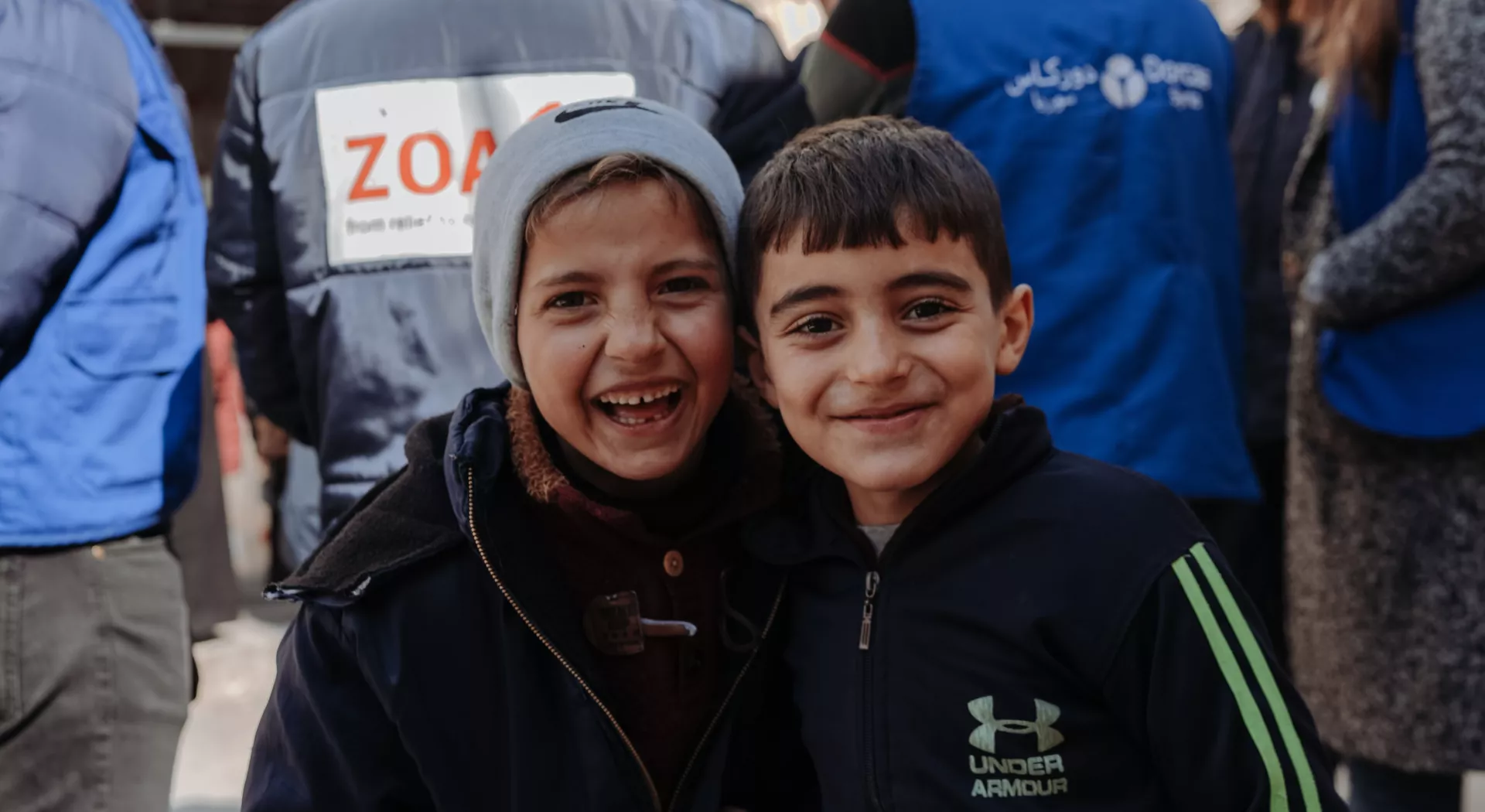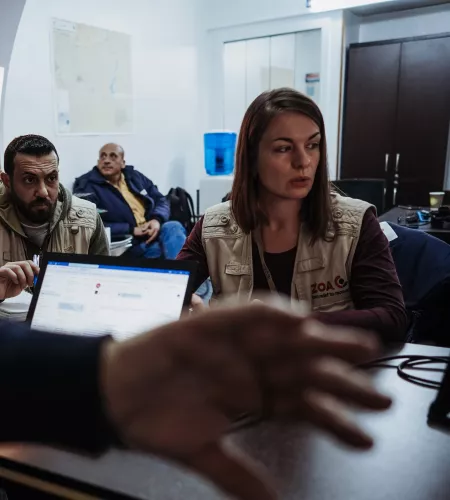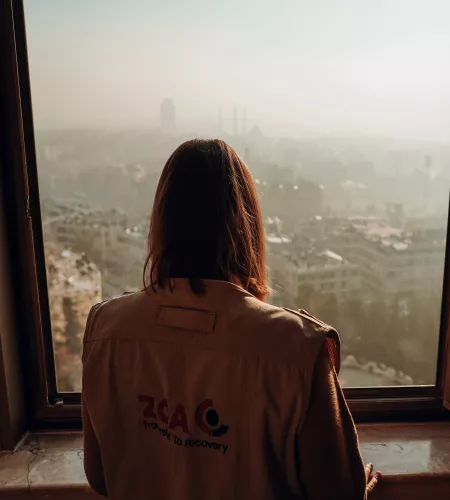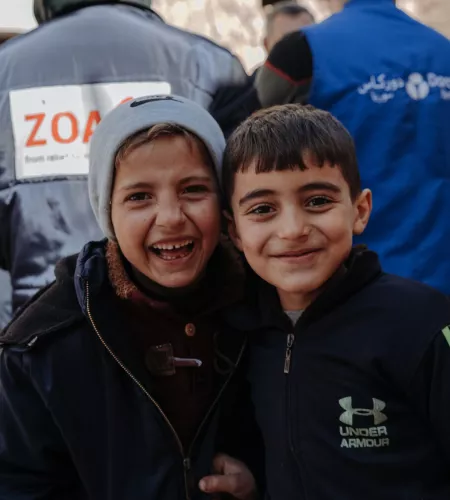Disaster after disaster strikes Syria. The conflict, that has lasted for twelve years already and has made so many people to flee. A recent cholera epidemic. And now a devastating earthquake - in the middle of a cold winter. “The people are defeated,” says Marjanne. "They just don't have an emotional buffer anymore to have an answer to this."
How does ZOA help the earthquake victims?
The magnitude of the earthquake disaster in Turkey and Syria is unimaginable. ZOA has been working in Syria since 2014, where a humanitarian crisis has been going on for twelve years. How does ZOA provide aid in a country where the need was already so great?

ZOA employees: victims and aid workers
‘This is just the beginning of the disaster’
Broken buildings, frightened people. Twelve days after the earthquake, the drama in the Syrian city of Aleppo is increasingly visible. “The impact really becomes clear when talking to people in the shelters,” says Marjanne van Vliet, director of ZOA in Syria. “There is a palpable fear of what is yet to come. I think this is just the beginning of the disaster.”
Fear everywhere
ZOA employees in the city are also victims. Wael Abboudi, for example, slept outside with his family for a few nights, fearing his house would collapse. “Nobody expected this to happen in Aleppo,” he says. “This city has already been destroyed so many times.” Most of the houses in the city are old or broken and therefore not resistant to an earthquake.
Fortunately, Wael was able to return to his house after a few days: it is still largely intact. Now he is committed to helping people who have become homeless. “There is fear everywhere. Some people can no longer function normally. They have no idea what their future will look like and whether they will ever be able to return to their homes.”

Inpections by engineers
ZOA, together with other aid organisations, hired a team of structural engineers that visit buildings to see if the houses are still safe to live in. “They come in at the request of the residents to see whether the cracks in the walls are deep or superficial,” explains Marjanne. “When they conclude that it is safe enough for people to move back into their homes, that gives a bit of certainty. That's really important."
Shelters
Many houses have nevertheless been completely destroyed or have become uninhabitable. Those who cannot or do not dare to return home, often go to one of the shelters in the city. Several schools and churches have been set up as such. ZOA, together with local partners, provides food, water, mattresses and blankets there. Large trucks are now bringing more water to the area. Everyone in the shelters helps to prepare emergency aid packages. Even the people who seek refuge there themselves.

Cash
The Syrian port city of Lattakia is also extremely damaged by the earthquake. As in Aleppo, many people were killed and injured there and many are still missing. In order to properly help the most vulnerable people in both cities, ZOA is now working hard on the rapid implementation of a project to distribute cash. This means that initially 2750 households directly affected by the earthquake will receive 95 euros for three months. They can spend that money to meet their most urgent needs. They can, for example, buy food, water, blankets, or materials to repair their houses.
Because ZOA has been working with this type of emergency aid for a long time in Syria, the help can be provided quickly. The strong presence of ZOA in the affected areas makes a rapid response possible. It helps enormously that coordination structures are already in place, Marjanne explains. “Because we have been providing emergency aid in Syria for so long, we can now scale up quickly.”

Yes, I'll help the victims of the earthquake in Syria
For €65, you can help a family with an emergency package for one month.
